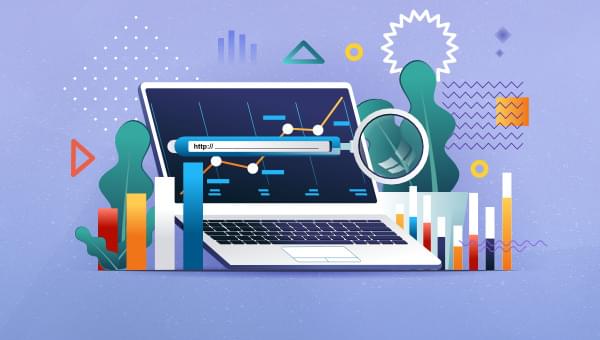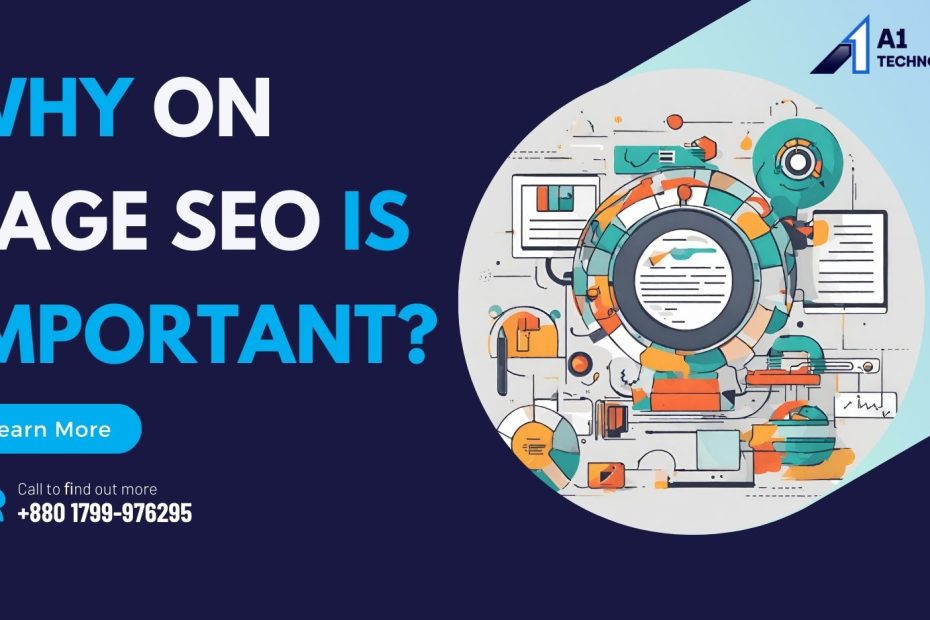On-page SEO is crucial for ranking well in search engine results. It enhances site visibility and user experience.
On-page SEO serves as the foundation for successful digital marketing. It involves optimizing individual web pages to earn relevant traffic. By honing on-page elements—such as title tags, content, internal links, and URLs—websites communicate effectively with search engines. This clarity allows search engines to understand and rank content appropriately.
Integrating targeted keywords strategically, improving site speed, and ensuring mobile-friendliness are all part of on-page optimization. This process is vital for signaling relevancy to search algorithms, guiding them to select your content as the answer to users’ queries. A well-optimized page improves not only rankings but also attracts the right audience, propelling your site’s credibility and conversion rates. Hence, on-page SEO is an indispensable component of a robust online presence.

Credit: www.sitepoint.com
The Essence Of SEO
Core Elements Of SEO
On-page SEO comprises various elements that contribute to a site’s visibility:- Title Tags: They define your page’s title in search engine results.
- Meta Descriptions: They provide a brief summary of your page’s content.
- Heading Tags: These are used to structure content for better user experience.
- URL Structure: Clean URLs with keywords can help improve rankings.
- Alt Text for Images: Descriptions for images assist search engines in understanding visuals.
- Page Performance: Fast-loading pages rank higher and keep visitors happy.
- Internal Linking: Links within your site help search engines crawl effectively.
- Content Quality: Unique, valuable content earns higher rankings and user trust.
Evolving Landscape Of Search Engine Algorithms
Search engine algorithms are always changing. Sites need to adapt to maintain rankings. Key trends to watch include:| Year | Algorithm Update | Focus Area |
|---|---|---|
| 2021 | Page Experience Update | User experience metrics |
| 2020 | Core Update | Content quality and relevance |
| 2019 | BERT Update | Natural language processing |

Credit: www.upwork.com
On-page Seo: The Bedrock Of Your Online Identity
Interplay Between Content And User Experience
On-page SEO thrives when content and user experience (UX) work hand in hand. Engaging content captures attention, while smooth UX keeps visitors browsing. This synergy is essential for a standout online presence.- User-friendly navigation: Guides visitors effortlessly through your site.
- Quality content: Provides answers and sparks curiosity.
- Attractive visuals: Hold the user’s gaze and enhance understanding.
Technical Aspects: Speed, Security, And Structure
The technical side of on-page SEO can’t be overlooked. Fast loading times, robust security, and a clear structure are the pillars that uphold the user’s trust and satisfaction.| Aspect | Importance |
|---|---|
| Speed | Quick loading captures and keeps attention. |
| Security | Secure sites win trust and rank higher on search engines. |
| Structure | A logical layout helps search engines and users navigate content. |
- Optimize images for faster loading.
- Implement HTTPS for secure browsing.
- Use clear headings for easy reading.
Content Is King
‘Content is King’ is not just a catchy phrase; it’s the core of on-page SEO. Great content pulls in readers and keeps them on your page. It turns visitors into customers. Search engines value top-notch content. They rank it higher. That’s why focusing on content is crucial.
Crafting Quality Content
Create valuable, informative content that solves user problems. Ensure it is original and engaging. Use:
- Visually pleasing formats: Headers, bullet points, and short paragraphs.
- Rich media: Images, videos, and infographics to support text.
- Readability: Simple language that’s easy to understand.
Quality content keeps readers on your site. This boosts your site’s authority and rankings.
Keywords: The Seeds Of Search
Keywords are how people find your content. They are the seeds you plant for search engines to harvest. Your content must have:
| Keyword Placement | Importance |
|---|---|
| Title | Signals the main topic |
| Headings | Shows structure and relevance |
| First 100 words | Demonstrates focus early on |
| ALT text for images | Describes image content for search engines |
Place keywords naturally. Avoid stuffing. Balance is key for both readers and search engines.
Meta Matters: Titles And Descriptions
Crafting Click-worthy Title Tags
Title tags are crucial. They grab attention. Think of them as headlines in a newspaper. A well-crafted title tag must be:- Relevant: It should match the page content.
- Concise: Keep it under 60 characters to show in full on SERPs.
- Unique: Each page needs a different title tag.
Meta Descriptions That Sell
Meta descriptions are like summaries. They tell the reader why they should visit your page. A persuasive meta description should:- Match the content on the page.
- Be action-oriented: Use active voice to encourage clicks.
- Stay within 155 characters to avoid being cut off.
Html Tags: Guiding The Search Bots
Header Tags And Hierarchy
Imagine a book without chapters or a store with no signs. Sounds chaotic, right? That’s where header tags come in. These tags organize content into neat, digestible sections. They tell search bots the storyline of your webpage, emphasizing what’s important.Optimizing Images: Alt Text And Beyond
Every picture tells a story, but search bots need a translator. This translator is the ALT attribute. ALT text describes images, helping bots index them properly. It’s also crucial for visually impaired users. Here’s how to do it:- Keep ALT text concise and relevant.
- Include keywords smartly.
- Avoid stuffing ALT text with keywords.

Credit: enx2marketing.com
Ux And Engagement: Satisfying The User
Site Navigation And Crawlability
Effortless site navigation boosts user happiness. It allows quick access to desired content. If users find what they need without hassle, they stay longer. This time spent signals search engines of a valuable, engaging site. The result? Better rankings.- Clear menus guide users through your site.
- Breadcrumbs show users their location within your pages.
- Internal linking connects related content, encouraging exploration.
Mobile Responsiveness: Catering To The Handheld World
Most web traffic comes from mobile devices. A mobile-responsive design ensures users on smartphones have an excellent experience. Such sites adapt to any screen size, preventing frustration from zooming and scrolling.| Feature | Benefit |
|---|---|
| Flexible Images | Images scale with the screen size, looking great on all devices. |
| Readable Text | No need for zooming to read text, easing the browsing experience. |
| Touchable Elements | Buttons and links are easy to tap, minimizing accidental clicks. |
The Speed Factor
Page Load Time Impact
Page Load Time is the total time taken to display the full content on a browser. A swift load time means happy visitors and better search rank. Sites that load fast have lower bounce rates. Users tend to stay longer, increasing the chances of conversion. Here are some effects of speedy load times:- Increased user retention: Users stay when pages load without delay.
- Better engagement: Fast loading invites users to interact more.
- Higher search rankings: Search engines favor fast websites.
- Improved conversion rates: Quick access leads to more sales.
Optimization Techniques For Speed
Optimization Techniques make your site zip like a racecar. Correctly applying these can slice seconds off load time. A faster site means more smiles and clicks. Use these techniques for a speed boost:- Compress Images: Smaller sizes load faster.
- Minify CSS, JavaScript, and HTML: Reduce file size for quicker loading.
- Implement Caching: This helps browsers to remember and load faster.
- Use a Content Delivery Network (CDN): This serves up content fast, everywhere.
- Optimize server response time: A robust server responds quickly.
| Aspect | Before | After |
|---|---|---|
| Image Size | 1MB | 300KB |
| Load Time | 6 Seconds | 2 Seconds |
| Server Response | 200ms | 100ms |
Analytics And On-page Success
Tracking On-page Seo Performance
Knowing how to track your on-page SEO efforts is key to online success. Tools like Google Analytics provide a wealth of information. They show where you shine and where you need to grow. Critical metrics include:- Page Views – How many visits each page gets.
- Bounce Rate – The percentage of visitors who leave after viewing only one page.
- Conversion Rate – The number of conversions compared to total visitors.
Iterating For Improvement
Setting up your on-page SEO is just the start. Continual improvement is a must. Analyze, test, and adjust your strategies with new data. Insights from analytics guide these revisions:- Identify weak spots in your SEO plan.
- Test changes on your site.
- Monitor results and tweak as necessary.
Frequently Asked Questions On Why On-page Seo Is Important?
What Is On-page Seo And Why It Is Important?
On-page SEO involves optimizing web pages to improve a website’s search engine rankings. It’s important because it helps search engines understand page content and assess its relevance to search queries, directly impacting a site’s visibility.
What Is The Most Important Factor For On-page Seo?
The most important factor for on-page SEO is high-quality content that offers value and satisfies user intent.
Is On-page Or Off-page Seo More Important?
Both on-page and off-page SEO are essential for ranking well. On-page SEO optimizes individual web pages, while off-page SEO builds a site’s reputation and authority. Balance is key, as neither is inherently more important than the other.
What Are The Three Most Important Elements In On-page Seo?
The three most important elements in on-page SEO are high-quality content, optimized page titles and descriptions, and proper use of headings and subheadings.
What Is On-page Seo?
On-page SEO involves optimizing web pages to improve a website’s search engine rankings and earn organic traffic.
How Does On-page Seo Affect Rankings?
Proper on-page SEO ensures search engines understand a page’s content, relevance, and structure, leading to better rankings.
What Are On-page Seo Best Practices?
Best practices include optimizing titles, descriptions, content quality, URL structure, and ensuring mobile-friendliness and page speed.
Why Are Keywords Important For On-page Seo?
Keywords help signal to search engines what your content is about, improving your visibility for those search queries.
Can On-page Seo Improve User Experience?
Yes, on-page SEO enhances user experience by providing relevant content, faster load times, and easy-to-navigate web pages.
How Often Should I Audit My On-page Seo?
Regular audits, ideally quarterly, can ensure your website complies with the latest search engine guidelines and SEO practices.
Conclusion
Emphasizing on-page SEO maximizes your site’s potential to rank high in search results. It’s the foundation for your online presence, influencing both user experience and search engine rankings. Prioritize relevant content, meta tags, and keyword optimization to ensure digital success.
Remember, on-page SEO is a crucial step in making your site visible and valuable to both users and search engines.

